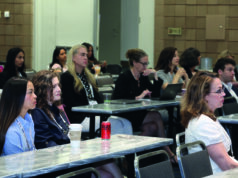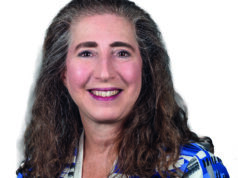
“True diversity is a good and powerful thing that should be celebrated. It’s not mandatory quotas; it’s intentional inclusion,” said Karith Foster, chief executive of Inversity Solutions, as she addressed the audience at the inaugural Keynote Speaker Series at VAM 2024.
Foster aims to create an effort that enrolls people, not repels them. In her talk, “Finishing the Journey to Inclusivity Through Belonging, Intention and Respect,” she challenged conventional approaches to diversity, equity, and inclusion (DEI) initiatives. She advocated for a paradigm shift towards true inclusivity through belonging, intention, and respect.
Foster’s keynote captivated attendees with her candid reflections on the shortcomings of current DEI strategies. She emphasized that many efforts are reactive rather than proactive, failing to achieve sustainable impact beyond initial training sessions.
“Burnout, confusion, overwhelm, exhaustion is real,” Foster acknowledged. “People are exhausted by how we’ve been addressing diversity. Whether you’re painted as the victim or villain, it’s robbing all of us of our agency and defeating the purpose of unity.”
Foster’s message was central to the need for organizations to move beyond tokenism and surface-level diversity metrics. She critiqued the prevalent approach in which diversity efforts, though well-intentioned, often result in short-lived benefits that fail to foster genuine change.
“When DEI is overwhelming, it can do more harm than good,” Foster cautioned, drawing attention to instances where flawed implementation led to legal and reputational repercussions for companies like Starbucks and FedEx.
Foster’s career trajectory, including her role as a national media figure addressing race relations, provided a backdrop for her deep dive into the complexities of achieving true inclusivity. She stressed the importance of acknowledging imperfections and fostering environments where individuals feel safe learning and growing.
“We’re not perfect. We will misspeak. We will put our foot in our mouths. We may freeze up when something makes us uncomfortable or over-explain, making things worse. We’re not all psychic all the time. We are all doing the best we can with the tools we have. But that doesn’t mean we become lackadaisical, or we stop trying. It means we make an effort to do and be better.”
Addressing the audience’s skepticism towards DEI discussions, Foster referenced studies that show widespread disillusionment despite substantial investments. She challenged the audience to redefine diversity beyond quotas and superficial differences, advocating for an inclusive culture that values diverse perspectives and encourages open dialogue.
Throughout her keynote, Foster emphasized the role of leadership in fostering environments conducive to inclusivity. She highlighted the significance of psychological safety, where individuals feel empowered to speak up without fear of retribution, fostering a culture of trust and mutual respect.
“Inversity is about never forgetting the statistics I shared earlier about how close we are genetically to one another,” Foster said of her vision of inclusivity that transcends visible differences. She called for a collective shift in consciousness, where biases are acknowledged and addressed to pave the way for healthier relationships and more equitable workplaces.
Foster’s call for “incremental Inversity“1%” urged small but meaningful steps towards a more inclusive future. Her blend of personal anecdotes and empirical insights left a lasting impression, challenging attendees to reconsider their roles in shaping inclusive organizational cultures.
During the forum, Foster emphasized leadership’s critical role in addressing workplace bias. She asserted, “Leadership must help empower employees, and employees must be empowered to address an issue when it comes up immediately rather than letting it sit and fester.” Foster underscored the pervasive nature of unconscious bias, stating, “Unconscious bias is real; it’spervasive and not going anywhere any time soon. So, we have to learn to deal.”
She outlined a proactive approach to managing these biases by “identifying and recognizing to minimize, mitigate and move forward with as little disruption as possible.” Highlighting the issue’s complexity, Foster noted that “over 100+ unconscious and implicit biases have been identified,” making it clear that addressing them requires continuous effort and attention.
As Foster concluded her address, she left attendees with a call to action, encouraging them to integrate the principles of INVERSITY into their daily practices. Her message of empathy, humility and continuous learning echoed through the conference halls, sparking conversations on how to transform diversity initiatives from compliance-driven tasks into catalysts for genuine cultural change. As organizations navigate the complexities of a globalized workforce, Foster’s insights offer a roadmap toward a more equitable future.











